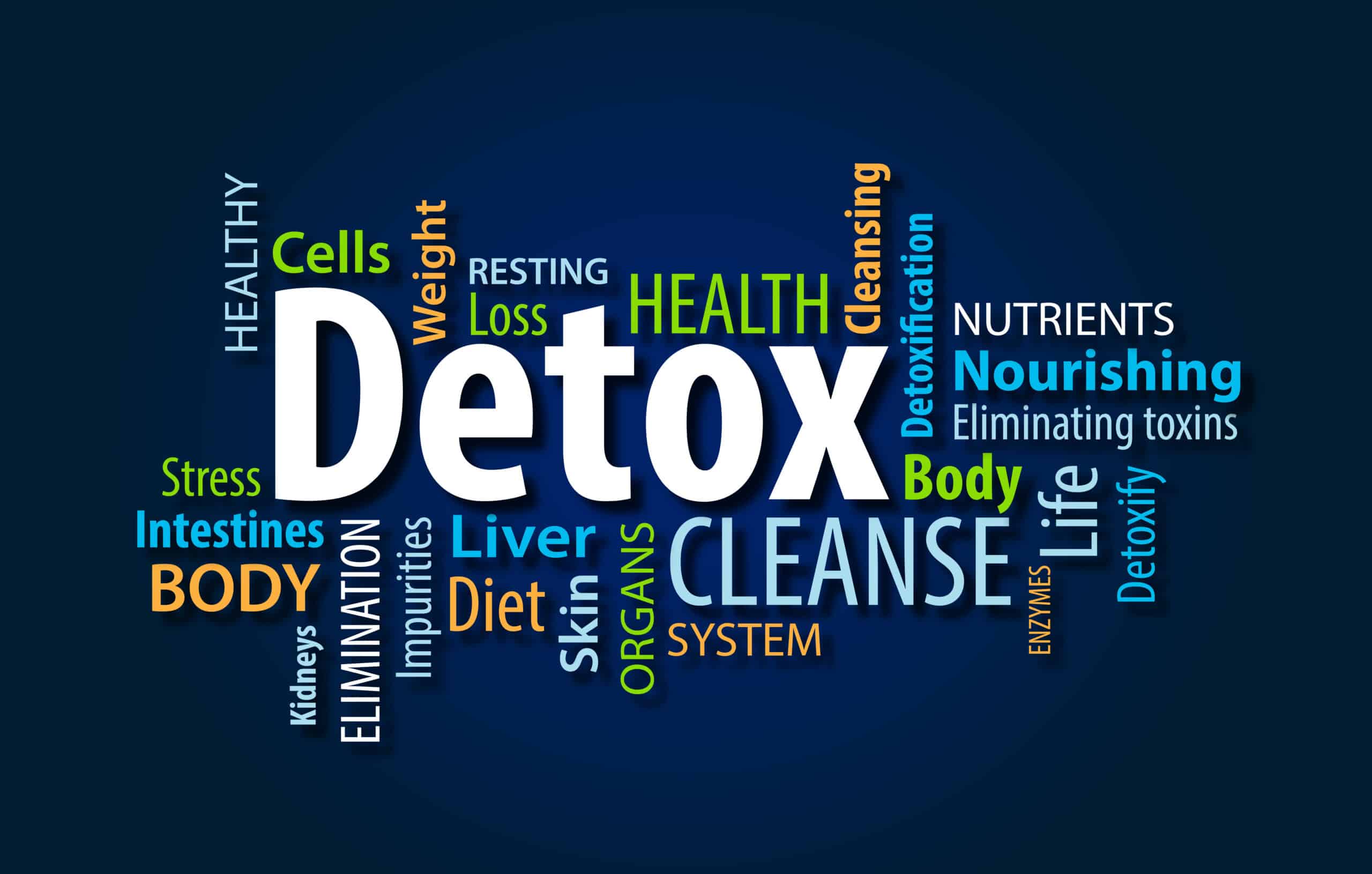What are Detox Diets?
Detox diets, also known as detoxification diets, are strict eating regimens designed to help clean the body and clear it from toxic buildup and waste. Detox diets claim to provide a complete cleansing and elimination of toxins from the body that are caused by eating poorly or by living unhealthily.
Types of Detox Diets
Not all detox diets require the same level of dedication or commitment, and some detoxing methods simply require extensive fasting. Some of the most notable types of detoxification diets include:
- Fasting: Fasting is not typically considered a detox diet, but it may be considered a cleanse or a method of body detoxification. There are many medical benefits of intermittent fasting, ranging from weight loss and increased metabolism to anti-inflammatory benefits, increased energy, and in some cases, even a possible reversal of type 2 diabetes, which can increase the risk of substance abuse.
- Juicing cleanse: A juicing cleanse eliminates all solid foods in exchange for juiced fruits and vegetables. Most juicing cleanses last anywhere between 24 hours and 7 days.
- Food elimination: Food elimination diets involve eliminating certain foods and then gradually reintroducing them. This can be useful for some to determine allergies and immune responses to certain foods.
- Colonics and colon cleanse: Laxatives, enemas, and even colonic irrigation techniques are used to help with cleansing and clearing the colon, hypothetically eliminating toxins and waste buildup.
- Commercial supplements and products: Commercial cleansing and detoxification products may range from traditional natural supplements to the use of a variety of chemicals and ingredients. It’s always best to speak with your doctor prior to trying any cleanse or detox diet, especially if you have any preexisting conditions or metabolic syndromes.
Can Detox Diets Treat Medical Conditions?
A major push of detox diets is their hypothetical ability to remove toxins and waste buildup, resulting in a healthier, happier individual.
Unfortunately, there have not been extensive studies involving detoxification diets and cleanses. However, there are still current studies available to help test different dietary restrictions and cleanse benefits as we learn more about how the body processes and utilizes various food sources.
Whether you’re trying to reduce autoimmune issues or struggling with a particular disease, it’s always best to turn to your doctor before starting a new cleanse or diet. Avoid trying over-the-counter detox cleanses or boxed cleanses before researching and learning all about their ingredients.
It’s imperative to remember that just because a product is labeled as a cleanse or a detoxifying product does not make it safe for consumption. Most cleanse and detox products available on the market today are not FDA approved.
Should People Follow Detox Diets to Lose Weight?
If you’re interested in following a detoxification diet to lose weight, you should proceed with caution. The first step is to educate yourself on nutrition and your own personal dietary needs.
Avoid falling for any detox trend that sounds appealing to you, even if you know others who have tried it successfully. Not all detoxification diets and cleanses are healthy or safe. Skip boxed detox products and instead opt for pursuing a healthier diet and lifestyle altogether.
If you are interested in losing weight and wish to do so with the use of a detoxification product or a cleanse, consider going all-natural with the use of herbs, vegetables, fruits, seeds, and nuts. Skip chemical-laden products or detoxification programs that include ingredients that you cannot pronounce or understand.
How to Use Detoxification Diets and Cleanses to Your Advantage
Detoxification diets and cleanses are not all bad. In fact, even with the lack of available studies, it’s likely that cleansing the body and eating healthily is beneficial, regardless of your reasoning. The more informed you become of proper nutrition and why a healthy diet matters, the easier it is to stick to a detox schedule or nutritional cleanse of your own.
Using a variety of online weight loss calculators, find your personal caloric intake maximum for weight maintenance and weight loss. If you get a few different numbers, calculate the average and strive for that. Consider your level of activity and how much exercise you get each day and throughout the week.
Familiarize yourself with nutritional labels and the importance and purpose of fat, protein, and carbohydrates. Consider the type of diet you feel best on, and what foods seem to cause you to gain weight, feel bloated, and feel unwell.
Research meals that are easy to put together and prep. The more streamlined your process is, the more likely you are to stick to your detoxification diet and nutritional plan.
By educating yourself on nutrition, dieting, and the concept of detoxing, cleansing, and fasting, you’ll feel much more comfortable with and confident in your nutritional planning. The more you understand about detox diets and cleanses, the less likely you are to fall for scams and fads. With enough knowledge, persistence, and commitment to health, you can help to keep your body detoxed and toxin-free year-round.




